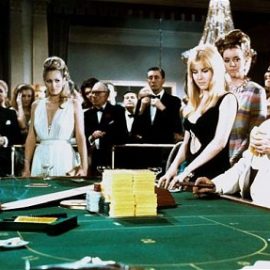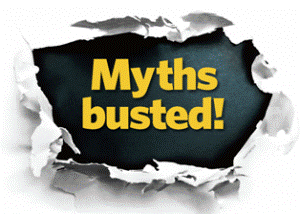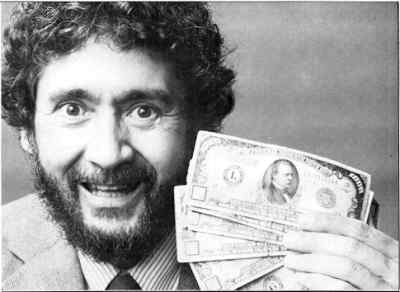Las Vegas is the myth that will forever bond America and gambling into inseparable bedfellows. The newest data from H2 Gambling Capita, however, invalidates common knowledge. The Strip doesn’t rule supreme on the punters’ bucket list anymore. The tables have turned as the world’s biggest gambling nations prove to be not the usual suspects.
For example, Macau doesn’t boast the highest gambling craving per capita in Asia and Finns, although heavily regulated and supervised by their government, still can’t help empty out their punters’ wallets every time the national lottery advertises the jackpot of the decade.
The study focused on calculating the losses per person for a year. So check out those billions of dollars spinning on the roulette wheel and, as the odds will have it, feeding the house edge to the brim.
The World’s Biggest Gamblers Are Not Your Usual Suspects
Australia Loves the Pokies
Australia has managed to sweep some unglamorous records from the US lately. Despite its low population density and an arid continental heart that bears almost no human print, The Down Under ranks highest in obesity, refugee intolerance, and gambling addiction.
The one-armed bandits roam the gambling venues of the Outback as the number 1 pastime of most Australians while New South Wales holds the royal flush of the country’s total number of poker machines- 93,000 out of the 200,000 slot machines on the continent.
In the four year period from 2006 to 2010, the average gambler would lose $1,128 per year. Casinos had to ban almost 1000 avid punters from their venues.
The situation turned so dire that the federal government took the matter under serious consideration in 2017. The first months of the year saw a change of tide in the loose gambling laws and regulations.
This is how Australia looks like when putting a foot in the casino door:
- The country outlawed online poker and in-play live sports betting.
- A couple of months later, the federal government also closed loopholes around gambling advertising before 8.30 pm during live sporting events.
- Will the pokies be next on the ban list?
Singapore Wants Gambling Tourists, Not Addicted Locals
Macau may spread like an Asian glitzy, neon-lit Strip floating on the dollar-green waters of the Pearl River Delta, but it appears that its gamblers and bettors are tamer than in Singapore.
Since the ribbon-cutting of its first casino in 2010, the financial hub of Asia has been heavily promoting gambling to tourists while strongly discouraging it among its own people.
But, play a double-edged game and you can’t help it the blood being spilled in the end.
Although the government proceeded to install a $81 fee for locals who want to step the threshold of a gambling venue and families can ban their members from betting on grounds of the law known as “Family Exclusion Orders”, the ubiquity and heavy advertising of casinos still draw in the crowds.
Now, Singapore is fighting the growing gambling addiction and match-fixing.
Ireland’s Bookies Are Not a Dying Breed
Ireland’s relationship to the bookies has always been at least as tense as its tie-ins with Great Britain. Just think Paddy Power Betfair and the green clover! The country’s totems and national emblems are related to tempting the odds and trying one’s good luck.
As expected, half of Ireland’s gambling losses- which amount to $588 per person for a year- come from online betting and the traditional street bookies.
Casinos do not pose the real danger here, but arcade halls that boast slot machines on which, until recently, children aged 16 could gamble.
To dampen the gambling spirit, the Irish government is currently enforcing a law that will ban all types of gambling- from gaming at carnivals to lotteries and online sports betting- to teenagers under the age of 18.
However, how do you stop a national sport in a country that invented the word for “poker”?
Canada Dabbles in Casino Tourism
It’s been rubbing shoulders with the US for so long that it was bound to happen. Canada has gone full speed on the casino highway.
99 % of statistics tell only 49 % of the story (word of wisdom courtesy of Ron DeLegge II) so the Canadian government would better track down the causes of the very high percentage (75) of its people taking on one form of gambling or another before the numbers increase even more.
And they could start with Saskatchewan, the province where lotteries, scratch and wins, and online betting have provoked losses of up to $841 per gambler.
In the spirit of good rulership, Canadian businesses offer hard-to-resist casino bus tours to older adults with a craving for gambling.
A recent study revealed that approximately 30% of these elderly visitors suffer from acute gambling addiction problems.
Finland, the Benevolent Dictatorship of Gambling
Gambling on e-sports and in land-based casinos is an all-time high in Finland too, the study shows. Some 110,000 punters have been diagnosed with gambling problems. They bring in the heavy revenue (their losses account for an influx of one billion euros per year in the country’s treasury department) but their return on investment is nothing more than the nagging urge to keep gambling.
And so they do, even if Finland has proved an iron-fisted dictator on the matter of games of chance. All gambling forms are subjected to a state-run monopoly which funnels profits to charities.
The triad of companies who were controlling domestic gambling last year- the Slot Machine Association, RAY, Finntoto for horse racing bets, and Veikkaus for lotteries- have merged into one this year in order to comply with the law and retain a monopoly over gambling.
Finns seem to trust their government to the point that there is no protesting- only a compliant majority- in regards to centralizing land-based and online betting. Besides, the Ministry of Social Affairs promised they were in the case of problem gambling, so what’s to worry about?
Don’t Forget the US Among the World’s Biggest Gamblers
The US still runs a gamble and a risk now and then (just consider the 2017 presidential elections), and the country’s losses are some of the biggest reported to the sheer size of the continent.
As for the rest of the world’s biggest gamblers, the odds are in and for the casino industry.



















